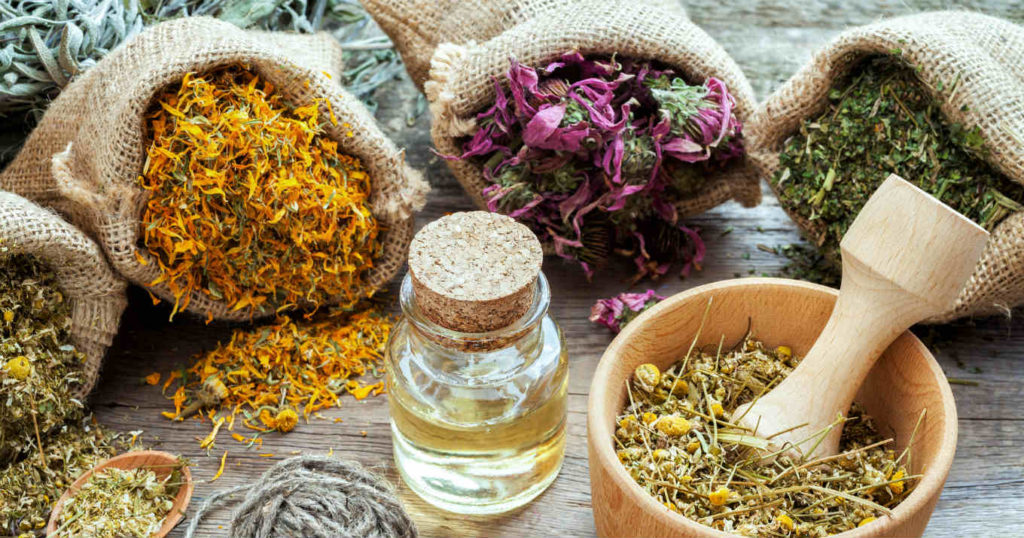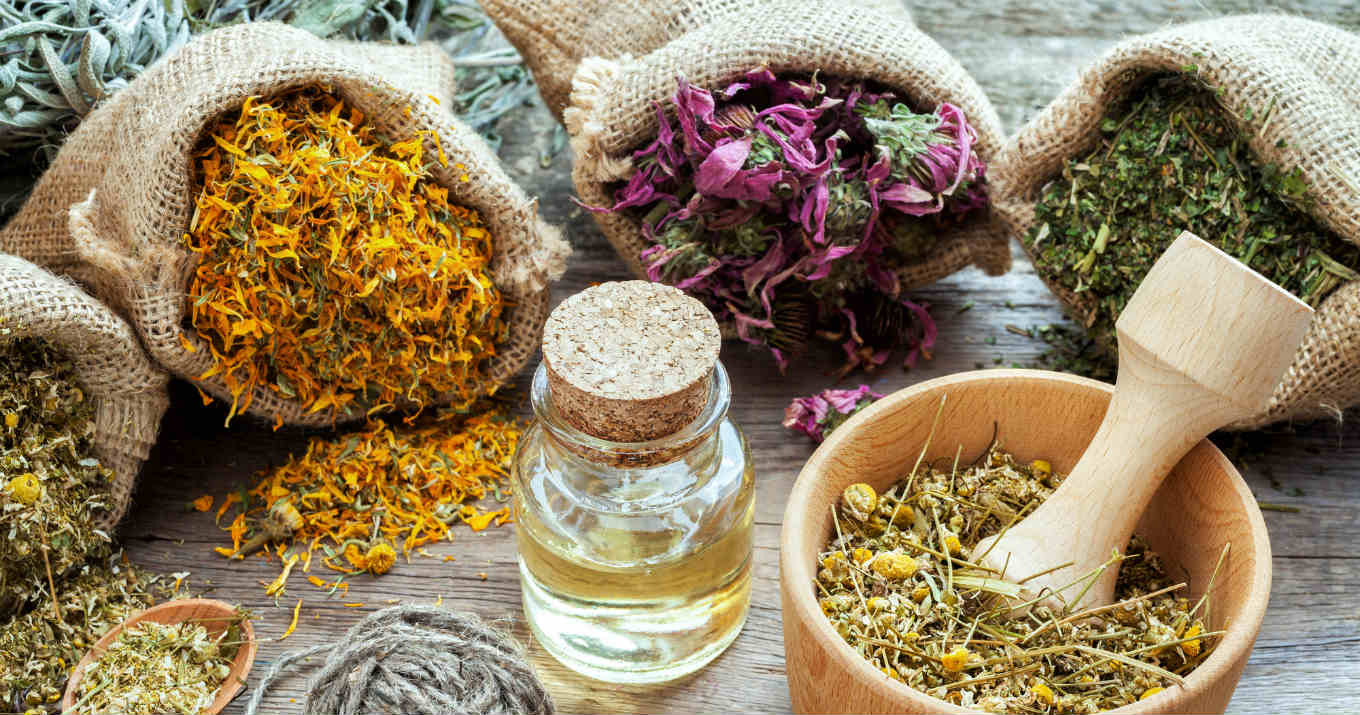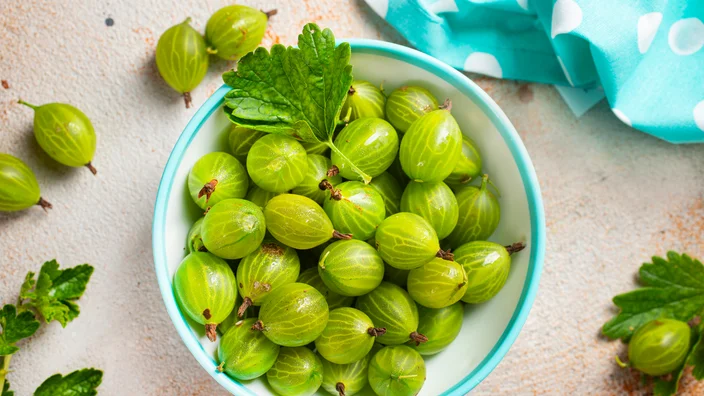
Adaptogens – Support for Adapting to Everyday Situational Stress
June 24, 2021

https://www.foodrenegade.com/
When the body experiences stress (whether physical or mental), resources are diverted from the brain and sent to the skeletal muscles and related areas so we can flee whatever threatening situation is being perceived. Depending on the severity of the threat — for instance, if we are in the woods and realize we are far too close to a bear — our heart rate may increase along with our blood pressure, our breathing speeds up, our eyes dilate and digestion decreases. These physical changes were designed to be life-saving measures in times of danger, but do we really need to set up our entire “flight system” when we suddenly realize that a project is due at work? What if, instead, we could rely on ingredients that over time could help our bodies better adapt to “situational stress” and support responding to non-life-threatening stressful situations in a more appropriate manner?
The term “adaptogen” as defined in the Merriam-Webster dictionary is a “nontoxic substance and especially a plant extract that is held to increase the body’s ability to resist the damaging effects of stress and promote or restore normal physiological functioning.” Adaptogens are further defined as herbs or ingredients that “protect the body against physical, mental, and emotional stress by strengthening the immune system” (Medicinal Herbs 61).†
Adaptogens are not just a single family of plants, but instead a collection of actions that results in the strengthening or “better adaptation” of the plant system. Adaptogens can work in different ways, so to better understand the concept of adaptogens, it can be easier to review some of the unique adaptogenic attributes of different botanical ingredients and discuss how they can support the body’s response when adapting to change and situational stress.

https://www.pinterest.com/pin/59180182573603842/
Adaptogenic Herbs & Ingredients
Rhodiola (Rhodiola rosea): Rhodiola, also known as Golden Root, Rose Root, or Arctic Root, is known for its characteristics that promote energy and stimulation.† As an adaptogen, it has traditionally been used to support strength and endurance, and modern herbalists typically suggest Rhodiola to aid in the reduction of situational fatigue and to support work performance by promoting increased attention and concentration.† Rhodiola may also support a reduction in stress-induced binge eating and promote longevity.†
Echinacea (Echinacea purpurea): Some adaptogens, like Echinacea, aid in boosting immunity by supporting the balancing of the endocrine (glandular) system.† More specifically, laboratory tests have shown that immune-related adaptogens can support adrenal functions, help cells to use oxygen more efficiently and promote increased cellular respiration.† Because adrenal glands are what control the release of stress-related hormones in the body, when the adrenals are weakened, common effects are fatigue and a compromised immune system.
Green Tea Leaf Extract (Camellia sinensis): Green tea extract has been shown to promote a positive effect on brain health and memory.† It is rich in antioxidants called “catechins,” which have been shown to support increased antioxidant capacity and protection against oxidative stress.† In addition, green tea extract has also been shown to help boost thermogenesis, the process by which your body burns calories to digest food and produce heat, which can aid in supporting weight loss goals.†
Turmeric (Curcuma longa): Turmeric has been used to support increased brain function and help alleviate temporary emotional states and characteristics like those associated with sadness.†Turmeric is known to promote a reduction of inflammatory compounds and supports optimal metabolic levels such as those related to blood sugar and cholesterol.†
Ginger (Zingiber officinale): Ginger has been used in traditional Chinese medicine for numerous complaints including muscle spasms, occasional sleeplessness, and situational fatigue.† In Germany, its use is approved for chronic fatigue syndrome and impaired concentration.† Preliminary studies indicate that Siberian Ginger can support improved physical performance during high-intensity exercise.†
Hops (Humulus lupulus): Although hops is not considered to be an adaptogen, it is known to help calm nerves.† Hops is believed to support a decrease in anxiety-like responses and is known to promote relaxation.† Humulus is also a lesser-known genus of the plant family Cannabacea. Both Humulus and Cannabis are plant genera within Cannabacea.
Cannabidiol (CBD) (Cannabis sativa): While it is not yet often discussed, it is my opinion that CBD (and most likely other cannabinoids as well) should be classified as an adaptogen, as the endocannabinoid system (ECS) is intertwined with all other integral body systems. An optimized ECS can support overall wellness and inner balance like other adaptogenic ingredients; therefore it’s easy to understand how CBD, which is known to bind to the receptors of and effect the ECS, can contribute to “promote or restore normal physiological functioning.”†

Food ingredients – herbs and spices. Culinary background.
Adaptogens Yesterday & Today
Using the support of botanicals for the body can be traced back to earlier civilizations including some interesting use as seen by the Vikings. In the 1940’s, during World War II, herbal plants were used to increase mental and physical performance in pilots and submariners. In the 1950’s and 1960’s, herbal remedies were used to increase stamina and survival for those living in difficult and dangerous environments.
Given the prevalence of situational stress in our daily lives, especially in the aftermath of 2020, it is easy to understand why products that include adaptogenic properties are becoming more prevalent. The addition of adaptogens to the diet is becoming exceedingly more popular as people search for balance and harmony within. Consumers are recognizing the importance of reserving the energy and the toll ramping up the flight response takes on the body for when the emergency or danger is real, and are becoming able to rely on more muted responses when less dangerous stressors appear.
† These statements have not been evaluated by the Food & Drug Administration. These products are not intended to diagnose, treat, cure, prevent or mitigate any disease.
About Zilis’ Scientific Research & Development Department
Our Scientific Research and Development Department is headed up by Dr. Marielle Weintraub, a hemp industry expert. She holds a master’s and a PhD in Behavioral Neuroscience and is very active in many dietary supplement and hemp industry trade associations, including her role as the current President of the U.S. Hemp Authority. Dr. Weintraub is committed to the continued development of hemp-specific information and testing to fulfill the Zilis mission.
Zilis is the creator of UltraCell™, a CBD oil product derived from hemp. Based in Argyle, Texas, a suburb of Dallas-Fort Worth, Zilis is privately held. Visit zilis.com for more information.
SHARE THIS POST
ABOUT THIS BLOG
Discover : The blog with the lifestyle, nutrition, science, and history of the hemp industry.
It’s your go-to for the most up-to-date information on hemp, CBD, dietary supplements, and more! Check it out!







